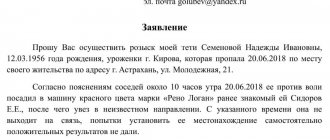Previously, it was generally accepted that only women were subject to any acts with sexual overtones. However, as the modern direction of development of society shows, any citizen can become an injured party in such a criminal act, regardless of his gender and age.
You can encounter such a crime anywhere: while performing your official duties, in public transport. A special category of acts of this kind are cases of attempted perverted actions in places of detention.
Definition of sexual harassment
In order to determine the article for harassment, it is necessary to define this violation of your sexual integrity. So, the concept of “sexual harassment” usually includes any sexual contact that is unwanted by one of the parties and is accompanied by threats of physical or psychological harm. Especially when the status of one of the parties to the conflict is higher than that of the other. For example, a boss may threaten a subordinate with a pay cut, or a teacher may threaten a student with a bad grade or a failed exam. So an important factor is not only the fact of threats, but also the fact that, due to his official duties and capabilities, this person is able to carry out these threats.
Also, sexual harassment can include unwanted contact with a colleague at work, which became known to management, but no adequate response was given. Finally, it can create a sexual atmosphere that can be perceived as painful and offensive. These may include obscene drawings, remarks and jokes. This can also be considered sexual harassment. Now that we have dealt with the definition, it is necessary to find out what article for harassment is provided for in Russia.
Does harassment lead to liability?
According to the norms of Russian legislation, sexual harassment is various actions that are committed by the perpetrator for the purpose of sexually harassing a person, raping him, or committing perverted acts.
The article of the Criminal Code of the Russian Federation for harassment implies the possibility of bringing the perpetrator to justice for committing any action aimed at violating the personal freedom and sexual integrity of a person
Types of harassment
Attempts to sexually assault a person can be made in several different forms, depending on the characteristics of the behavior and status of the victim, as well as taking into account the goals that the perpetrator adheres to when committing a criminal act of a sexual nature.
In particular, when qualifying this crime, the attitude of the injured party to the incident is taken into account. In particular, special attention is paid to whether a person believes that such acts are acceptable in relation to him or not. For example, some individuals may view dirty jokes and friendly spanking as normal and not offensive.
Sexual harassment
As a rule, most people associate actions of this nature with actions aimed at a person’s sexual integrity.
However, this is only one type of illegal actions in this area. Sexual harassment refers to certain actions that are committed against the will of a person, while having a clear sexual connotation or a hint of possible intimacy of an intimate nature.
According to Russian legislation, sexual harassment, especially those actions committed against persons under the age of majority, are considered the most dangerous offenses.
Other types of harassment
In addition to acts of a sexual nature, there are several other types of relationships that can occur in the everyday life of any person.
Harassment in public places
In particular, such actions can be expressed in the following:
- Squeezing passengers.
- Feeling certain parts of the body.
- Touching people, provided that such actions go beyond the boundaries of social decency.
- Attempts at nudity.
- Attempts to get under the clothes of other citizens.
It is almost impossible to prove such actions.
As a rule, harassment of a person in the public eye has a sexual connotation, but the actions are carried out as if by chance or secretly.
Obsessive attention
This type of action may include:
- Offering a conversation without the will of a person.
- Fulfillment of any request.
- Surveillance of the object of attention.
- Harassment, attempts to set up deliberate meetings, provided that they do not pose any threat, but are unpleasant for the victim.
- Unpleasant, annoying calls.
As crime statistics show, the police still do not respond to such complaints, despite the fact that some of them end in sexual harassment and rape.
Harassment and violence
Sexual harassment is very close to violence, but not everyone knows about it. Therefore, victims often do not seek help from law enforcement agencies or psychologists, having experienced this tragedy on their own for many years. Many people don’t even know what article of harassment exists in the Criminal Code of the Russian Federation.
Keeping a problem under wraps can lead to serious psychological consequences in the long run. Some victims may consider themselves guilty of what happened and may be afraid or ashamed of it. Some may feel that they simply will not be believed, will not understand, or will be ridiculed. Often women prefer to remain silent about the fact of harassment, fearing unnecessary publicity. Because in such cases, society condemns the victim, not the criminal. Another factor in non-reporting is the fear of losing a job, being blacklisted among employers who are able to provide a place in this particular specialty.
How to report harassment?
An article for harassment is provided for in Russian legislation, so reporting these facts is simply necessary. In order to collect a full-fledged evidence base, lawyers advise recording all the information about what is happening, carefully and scrupulously recording what happened and when, who was present and what could be heard, who did and said what. This will help you win your sexual harassment case in the future. It is necessary to record everything in as much detail as possible, and make a copy at the first opportunity so that the evidence base is as complete as possible and stored in a safe place. Any incident related to harassment must be immediately reported to management and the fact of your complaint recorded. After all, if effective measures are not taken by the authorities, then they themselves can be held accountable under this article.
It will be useful to duplicate each message to the trade union organization. Only an official statement about the fact of the crime committed gives the victim hope of achieving justice and real punishment for the criminal for harassment in the Russian Federation. There is an article on this matter in the Criminal Code. If necessary, you can resort to contacting independent lawyers, as well as public organizations that provide assistance and support to women who find themselves in a similar situation. True, in modern Russia such organizations exist only in large cities. As a result, the potential perpetrator may realize his guilt and back down in the early stages, before the harassment escalates into sexual assault.
If something irreparable happens
If everything was not limited to harassment, but developed into sexual violence, then actions should be different, more decisive. The first step is to file an official complaint with the police and insist on a medical examination as soon as possible. Police officers must accept your statement as soon as possible, since this crime is classified as particularly serious. If the process is delayed, then contact their management, the prosecutor’s office, or the personal security department. Record the refusal to accept the application, as well as the names of law enforcement officers and their ranks.
If possible, you should seek advice from a lawyer. He will immediately orient you in your rights and responsibilities and will be able to help so that all bureaucratic procedures go through as quickly as possible. If the police did not respond to your appeal properly, then you need to contact the prosecutor's office. The next authority is the court.
Actions of the victim during harassment
Unfortunately, it is often quite difficult to bring the perpetrator to justice for harassment, since there are no witnesses who could testify.
Therefore, in order to punish the criminal, the other party to the incident needs to know how to act correctly in this situation. As a rule, cases of sexual harassment at work end up in court, since such actions are systematic and are often aimed at the sexual integrity of a citizen.
In this case, the victim, first of all, needs to collect evidence that will need to be provided to law enforcement agencies to confirm the statement. In this case you will need:
- Record the fact of harassment. To do this, it is enough to provide an audio or video recording of the incident.
- Record requests from senior management.
- Find witnesses.
What to do and where to go to report harassment
The first step is to file a police report.
In this case, the document must correctly state the entire situation, taking into account all the circumstances, and provide all available information about the other side of the incident. Based on the results of consideration of the application, the police will conduct an investigation, after which they will decide whether to initiate criminal proceedings in the case or to refuse it.
Taking into account the fact that the criminal law does not have a criminal article specifically for harassment, most often law enforcement officers refuse to initiate a case. Therefore, experts recommend that victims immediately go to court.
When filing a claim in court, the applicant must indicate the following:
- Name and address of the judicial authority.
- Personal and contact details of the applicant.
- Clarification of the circumstances of the incident.
- Requirements that he asks to be satisfied during the trial.
- List of evidence presented to the court.
- Date and signature of the applicant.
Within a few days, the judge reviews the claim and makes a decision to consider the case. Based on the results of verification of the statement of claim, the plaintiff and defendant receive subpoenas.
Do I need to contact a lawyer and why should I do it?
Taking into account the fact that an ordinary person who has become a victim of harassment may not have a legal education, and also in the absence of a regulatory act regulating sexual harassment, and not crimes against sexual integrity, it is very difficult to act independently in such a situation.
Therefore, experts recommend seeking help from a lawyer before filing a claim in court. A lawyer can help:
- File a claim.
- Determine how to behave correctly in relations with the other party.
- Collect as much evidence as possible.
- Bring the culprit to justice within the framework of criminal law.
Collection of evidence
It is important to conduct a medical examination in the first hours after sexual assault. If law enforcement agencies do not give you the appropriate referral, contact your physician at the clinic. In addition to recording what happened, it is necessary to get tested for sexually transmitted diseases as quickly as possible. In order for the results of the examination to be as complete as possible, it is best not to wash or change clothes after the incident. This way, doctors and police will have more evidence. Experts also advise not to eat or drink until the time of treatment, otherwise you may lose important evidence.
If you need this, you can request that a female police officer or investigator work with you. If you receive an offer from a sexual offender to withdraw a police report for reward or threats, you should immediately report this to the police and prosecutor's office. If possible, you need to record proposals or incoming threats on a tape recorder or find a witness who will hear everything and testify in court. In order to prevent additional publicity about the process, you can ask for confidentiality during the investigation and trial.
Commentary on Article 367 of the Code of Criminal Procedure of the Russian Federation
1. In Part 1 of this article, a certain deviation “under condition” from the principle of direct examination of evidence is allowed. The appellate court has the right to read out at the court hearing the testimony of persons who were not called to the court hearing of the appellate instance, but were questioned in the court of first instance, i.e. in this case - in the magistrate's court. The consent of the parties to this is not required, however, if this testimony is disputed by the parties, then the persons who gave it are subject to being summoned to trial and interrogated. It should be noted that this article is not about the disclosure of the protocols of interrogations of the defendant, victim and witnesses given during the investigation - in these cases the general rules established by Art. Art. 276, 281.
2. Provided for in Art. 367, the list of decisions made by the appellate court is not exhaustive. In this regard, the appellate court has the right to overturn the conviction and acquit the defendant, overturn the acquittal and issue a guilty verdict, overturn the guilty verdict and issue a new conviction, overturn the acquittal and issue a new acquittal, cancel the decision and issue a sentence <1>.
——————————— <1> See: paragraphs 16 - 17 of the Resolution of the Plenum of the Armed Forces of the Russian Federation dated December 23, 2008 N 28 “On the application of the norms of the Criminal Procedure Code of the Russian Federation governing proceedings in the courts of appeal and cassation authorities."
3. When checking, based on appeals and (or) submissions, the legality, validity and fairness of the sentence, the legality and validity of the decision of the magistrate, the appellate court is obliged to eliminate errors and violations of the law and consider the criminal case on its merits with a final court decision, except for cases when, during the investigation or preliminary investigation of the case, significant violations of the criminal procedural law were committed, without eliminating which it is impossible to make a legal, reasonable and fair verdict or other decision, and also when the magistrate did not consider the criminal case on its merits (a decision was made to return the criminal case to the prosecutor, on the refusal to accept the application for proceedings, on the return of the application to bring it into compliance with the requirements of the law, on the termination of the criminal case due to the victim’s failure to appear at the court hearing, etc.). In these cases, the appellate court has the right, by its decision, to cancel the verdict or decision of the magistrate and return the criminal case to the prosecutor, or to cancel the decision of the magistrate and send the case for a new trial to the same magistrate <1>.
——————————— <1> Ibid.
4. The content of part 3 of this article does not fully correspond to the content of the subject of the trial on appeal (Article 361). The fact is that the appellate court checks not only the sentences, which are only mentioned in part 3 of the article. articles, but also decisions of the magistrate.
5. Contrary to the content of Part 4, in the cases provided for in Clause 2, Part 3, Com. article, the appellate court issues not only a verdict, but also a decision to terminate the case - if there is a so-called non-rehabilitative grounds for termination. However, by analogy with Part 8 of Art. 302 this, apparently, should not apply to such grounds as the expiration of the statute of limitations for criminal prosecution and the existence of an amnesty act, because in these cases, a guilty verdict is usually issued with the convict being released from punishment.
Consequences of sexual harassment
Rest assured that the article for harassment is provided for in Russian legislation, so the offender must be punished accordingly. The main thing for the victim is to overcome the consequences as quickly as possible. These may include fear, anger, feelings of personal helplessness, loneliness, shock, and numbness. It is best to turn to a professional psychologist who will help you understand yourself and put everything in its place in life.
Often, a victim of harassment has doubts about the need to initiate a criminal case or a desire to close it after a short time. It is necessary to drive such thoughts away. According to the Russian Criminal Code, the article for harassment provides for a real prison term for the offender. He must be punished accordingly. An experienced psychologist will help you cope with this situation.
Punishment for harassment
Article 367 of the Criminal Code of the Russian Federation “Harassment” provides for specific punishment for the perpetrator. Moreover, we may not even be talking about sexual harassment, but about the manifestation of an unhealthy interest in a person, because of which he will experience discomfort. In this case, the perpetrator may be sentenced to a fine of 200 thousand rubles, compulsory labor for up to 80 hours, correctional labor for up to one year, arrest for up to four months, or imprisonment for up to two years. The court may also decide to prohibit him from conducting certain activities or holding certain positions for up to three years.
HOME Virtual Governor of the Perm Territory Paperdaemon
AMENDMENTS TO THE RF Criminal Code
Having carefully examined the situation with the detention of sectarians-stealers in the Voronezh region, and also having studied their methods of introducing CHAOS, the Virtual Governor of the Perm Territory, Piperdemon, known for his mystical-fascist views, proposed his amendments to the Criminal Code of the Russian Federation, which in his opinion will stop the destructive actions of such organizations and will significantly facilitate the detention procedure for law enforcement agencies.
Article 361. “Damage”
This article examines liability for unacceptable actions to damage a person, a group of persons, property, equipment, animals, etc. on plants and microorganisms, natural and other objects.
1. Inflicting damage in an esoteric way without the use of special means and techniques, hereinafter referred to as “simple damage.” Punishable by imprisonment from 3 months to 1 year, or correctional labor in the amount of 240 hours, or a fine of 100 minimum wages.
2. Inducing damage in an esoteric way using technomagical devices, for example, using the Enchanted Crisphigel of the Yarovrat system, as well as devices used by the Ahnenerbe society or other special technical means such as a neuromantic psycho-amplifier. Punishable by imprisonment from 1 to 5 years, or correctional labor in the amount of 500 hours, or a fine of 300 minimum wages.
3. Inducing damage in an esoteric way using natural as well as diabolical power and mastery of induction techniques. Punishable by imprisonment from 3 to 7 years, or correctional labor in the amount of 500 hours, or a fine of 500 minimum wages.
In all cases, mitigating circumstances are:
— personal motivation when applying simple damage; - intuitive nature of overlay; - voluntary removal of damage.
Aggravating circumstances:
- inducing repeated damage or changing the course of application, in order to complicate the removal process; - production, storage and sale of technomagical devices, as well as methods for their production and use, as well as any methods of causing damage; - customized nature of damage; - damage committed by a group of persons by prior conspiracy; - causing damage to a group of people; - causing damage to a group of persons during the performance of their official or official duties; — damaging a group of people during their participation in public events; - damage resulting in serious illness or death of the victim, destruction or disabling of important technological and social objects, buildings and structures, as well as cultural monuments; - causing damage with the sacrifice of people and other domestic animals; - damaging government and public figures.
Article 362. Criminal Code of the Russian Federation “Thought crime”
This article examines responsibility for Thought Crimes in relation to citizens of all categories, objects of living and inanimate nature, private property, social infrastructure and authorities.
Thought crime (hereinafter M.) is a hidden or unspoken non-verbal call to action, which can serve as a prerequisite for the motivation to commit a crime both by the criminal himself and by a person or group of persons motivated by him, or directly be considered as preparation for committing a crime. Methods for detecting and establishing the fact of M. in citizens are currently undergoing a number of certified government studies.
1. M. in the case of automotivation is a product of the activity of an isolated individual, namely, his intellect, the consequences of volitional restructuring of memory (for example, denial of obvious or official information), as well as the work of his imagination, prone to constructing and thinking through criminal plans. Punishable by imprisonment from 6 months to 2 years, or correctional labor in the amount of 500 hours, or a fine of 100 minimum wages. If there are significant aggravating circumstances, lifelong compulsory treatment in closed psychiatric hospitals may be prescribed.
2. M. based on ideological motivation should be considered as a more severe form of M. due to the use of the advantages of the ideological organization of thought, more effectively aimed at the implementation of criminal plans and intentions. Punishable by imprisonment from 3 to 7 years, or lifelong compulsory treatment in closed psychiatric hospitals.
3. Creation or participation in an Organized Thought-Criminal Group (hereinafter referred to as OMG). As the most serious form of M., containing all possible types and methods of M., it should be punished as severely as possible. Punishable by imprisonment from 7 to 15 years, while the maximum term of imprisonment cannot be more than 25 years, and according to the totality of sentences, the term of imprisonment cannot be more than 30 years, or Capital Punishment (CMP) may be applied. . The same punishment under this part of Art. 362 can be replaced by lifelong compulsory treatment in closed psychiatric hospitals in the presence of mitigating circumstances.
In all cases, mitigating circumstances are:
— personal motivation when committing murder; - voluntary renunciation of Thought-Criminal Beliefs, the facts of which are established through special studies of the defendant’s brain; - cooperation with law enforcement agencies and a complete written statement of the nature and method of M. for inclusion in the case materials.
In all cases, aggravating circumstances are:
— an attempt to convince and motivate other citizens with one’s own M.; - development, storage and dissemination of methodological recommendations for M. and publication of descriptions of application experience through the media, as well as preparation for the implementation of M. - performance of M. as part of OMG; — customized character of M.; - M. committed by a group of persons by prior conspiracy; — committing a crime against a group of persons during the performance of their official or official duties; — committing crimes directed against mass cultural events; - committing a crime that resulted in a serious illness or death of the victim, destruction or disabling of important technological and social objects, buildings and structures, as well as cultural monuments; — committing murder against government and public figures.
Article 363. Criminal Code of the Russian Federation “On the ban on private creative activity”
This article examines a wide range of artistic works (hereinafter referred to as HP), be it cinema, music, literature (poetic form, prose, libretto, etc.), painting, graphics, sculpture, architecture, pantomime, theatrical activities, circus art, artistic performance, as well as other forms, genres and styles of expression of HP in the context of the a priori nature of their extremist basis, due to their creation without taking into account the urgent needs of society in culture, determined by the Ministry of Culture of the Russian Federation (hereinafter referred to as the RF MK).
Each new HP represents an act of uncontrolled aggression against public morality and morality. Very often, HP, being created/implemented by various kinds of unprofessional and marginal elements, pose a direct threat both to the safety of the personal unconscious of each individual citizen, and to the safety of the collective unconscious of the entire society as a whole.
Since the basic model of Sovereign Democracy of the Russian Federation (SD RF) does not provide for an unaccounted way to realize creative potential, there is an official way to recognize cultural heritage in accordance with a separate “Instruction for determining the cultural potential of cultural heritage” developed by the RF MC.
HP created without permission or that has not passed the “Instructions for determining the cultural potential of HP” are subject to immediate confiscation and destruction, as well as removal from electronic media, and persons are subject to criminal prosecution:
1. In the case of a one-time act of creating a HP, the guilty person is punished by imprisonment from 3 to 6 months, or correctional labor in the amount of 240 hours, or a fine of 150 minimum wages. If there are significant aggravating circumstances, compulsory treatment in closed psychiatric hospitals may be prescribed for the required period until complete recovery.
2. Repeated and systematic creation (participation in) HP entails punishment in the form of imprisonment from 3 to 5 years, or compulsory treatment in closed psychiatric hospitals for the required period until complete recovery.
3. Group creation or participation in the creation of HP, as the most serious form of crime, entails punishment in the form of imprisonment from 5 to 8 years, or lifelong compulsory treatment in closed psychiatric hospitals.
In all cases, aggravating circumstances are:
— the thought-criminal nature of the creation of HP; — customized nature of HP creation; — group (organized-criminal) nature of the creation of HP.
In all cases, mitigating circumstances are:
— personal motivation for creating HP;
— voluntary destruction of any media, samples, copies and electronic versions of HP; — cooperation with law enforcement agencies and a complete written statement of the nature and method of creating the HP. Photo: ritual of sectarians stealing bread, during which all the above amendments were violated. 2009.
Harassment of minors
The attacker faces a real prison term, and a significant one, for harassment. It is generally prohibited to show sexual interest to minors. As a rule, in cases of violation of the sexual integrity of a minor or harassment, courts judge the offender under the article for seduction of minors.
In this case, harassment includes actions aimed at violating the sexual integrity of a child, using active physical or psychological pressure. This could be blackmail (for example, the possibility of disclosing compromising information to a teenager), the threat of damage to his personal belongings and property, or the use of the victim’s dependent position (for example, by a teacher). It is worth noting that today not only girls, but also boys under the age of majority are at risk.
Harassment at work: are you at risk?
Sexual harassment in work or even academic relationships is not uncommon. Supervisor-subordinate or teacher-student connections are quite common. If we analyze the cases considered in court, the following categories of persons fall into the risk group:
- those who are dependent on their workplace. For example, a single parent raising a young child;
- an employee with no experience who just got a good position and does not have a family or serious relationship;
- “closed” employees who, even under collective pressure, will not complain to anyone, silently and humbly doing their work and not knowing how to stand up for themselves;
- having significant financial problems, including those related to their current place of work. For example, those who took out a loan on favorable terms;
- female students: nonresident students living in a dormitory, without family or friends in a foreign city, studying full-time on a budget basis and living on a scholarship, and therefore it is vital for them to pass the exam with excellent marks.









